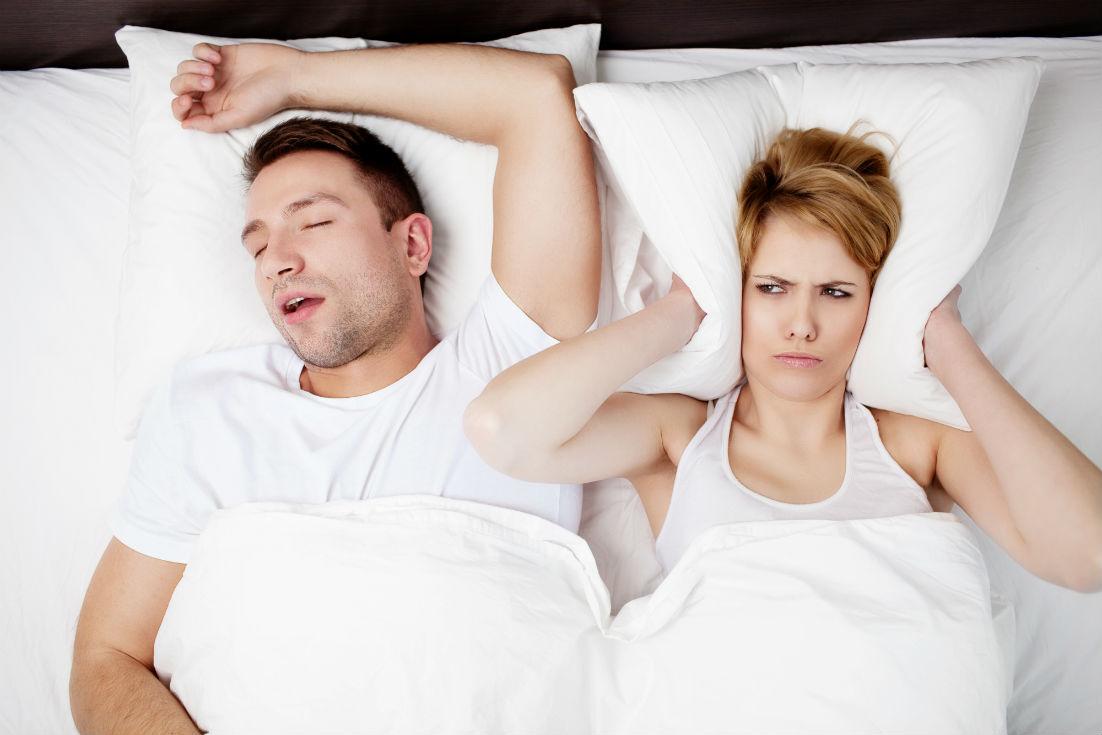Pittsburgh Sleep Apnea - Sleep Disorder Treatment
 Did you know that one third of the population snores? Do you or a member of your family snore while sleeping? Suffering from heavy fatigue caused by a night of interrupted sleep? These may be symptoms of sleep apnea. There are more that 90 million people at risk for this serious, life threatening disorder that can be masked by the sound of snoring. John L. Waldman, DMD and his dental team provides a comprehensive solution to sleep apnea using dental appliances that help patients finally achieve a full night's rest. In fact, we are one of the few dental practices certified to treat sleep apnea in the Pittsburgh area. We encourage you to watch the video below and contact us if you are experiencing any of these symptoms.
Did you know that one third of the population snores? Do you or a member of your family snore while sleeping? Suffering from heavy fatigue caused by a night of interrupted sleep? These may be symptoms of sleep apnea. There are more that 90 million people at risk for this serious, life threatening disorder that can be masked by the sound of snoring. John L. Waldman, DMD and his dental team provides a comprehensive solution to sleep apnea using dental appliances that help patients finally achieve a full night's rest. In fact, we are one of the few dental practices certified to treat sleep apnea in the Pittsburgh area. We encourage you to watch the video below and contact us if you are experiencing any of these symptoms.
Snoring is a phenomenon relating to the collapse of the pharyngeal airway space (throat) due to the relaxation of the throat muscles making the airway space smaller. These relaxed soft tissues vibrate in the back of the throat causing breathing to be noisy and interpreted as snoring.
One of the contributing factors to this collapse is a lack of firmness in the ligaments associated with mandibular (jaw) posturing. Consequently, during sleep, the jaw may fall back displacing the tongue into the airway space. People that have a TMJ Disorder or Dysfunction are at an increased risk for sleep disordered breathing. Inadequate occlusion (bite) associated with a TM disorder, excessive weight and/or tissue growths within the airway space are all contributing factors. Additionally, collapse of the airway space may result from excess fatty tissue associated with obesity, and inflammation of the throat tissue due to alcohol and tobacco consumption.
Progression of this disorder can lead to further collapse of the airway space resulting in a sleep disordered breathing condition known as obstructive sleep apnea. Obstructive sleep apnea is linked to a myriad of serious systemic conditions including, but not limited to, stroke and death.
If you suspect you have sleep apnea your first step is to contact your medical or our dental sleep specialist.
After seeing a medical or dental sleep doctor, a referral may be provided to a sleep specialist for a polysomnogram (Attended Sleep Study). A diagnosis of mild to moderate sleep apnea suggests a treatment protocol of a dental mandibular repositioning appliance as opposed to a Continuous Positive Airway Pressure (CPAP) device used for moderate to severe sleep apnea. An anti-snoring oral device is only indicated when obstructive sleep apnea has been ruled out by the medical sleep specialist.
Mandibular repositioning appliances are the most conservative and non-invasive form of treatment. They have a very high success rate (90+%)when worn as directed. CPAP has a 100% success rate when used as directed. Unfortunately, CPAP intolerance is high due to a myriad of reasons from clostrophobia to TM Joint pain.
Contact Our Pittsburgh Sleep Apnea Dentist
Our experienced dental team partners with medical sleep specialists for the diagnosis and treatment recommendations. Medical sleep specialists in turn partner with us by providing prescriptions for oral or mandibular repositioning appliances. Call us today if you suspect that you may have this potentially life threatening disorder. We're just a phone call away from a better nights sleep!

